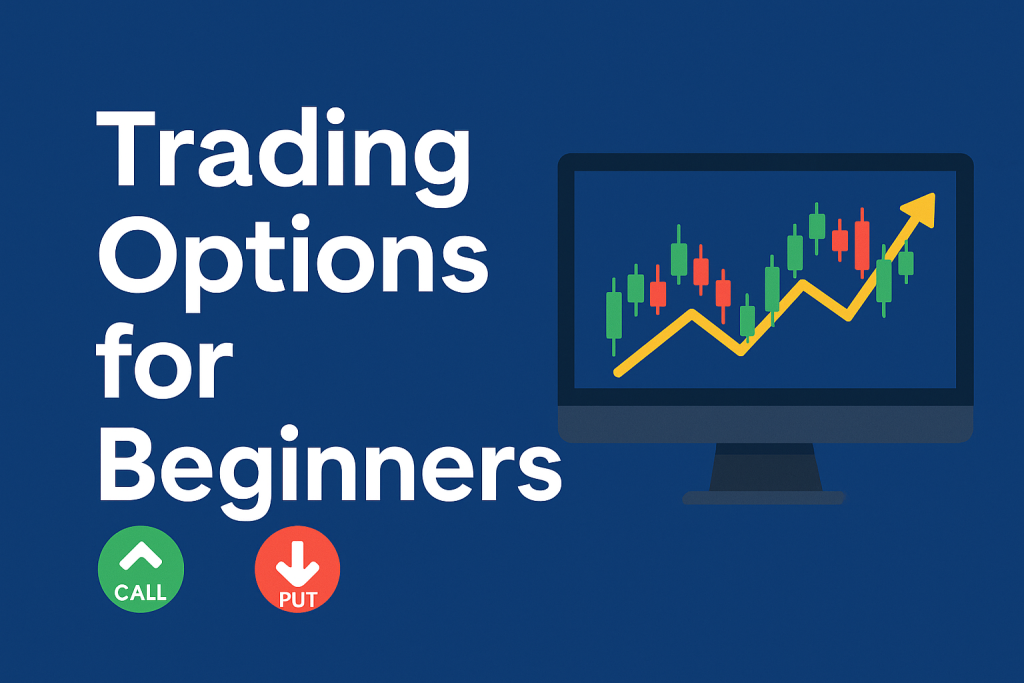Trading Options for Beginners – Complete 2025 Starter Guide

If you’ve ever wondered how professional traders generate returns beyond regular stocks, chances are you’ve heard of options trading. But for newcomers, options may seem complex or even risky. That’s why this guide to trading options for beginners breaks it down in a simple and actionable way.
What Are Options in Trading?
Options are financial contracts that give you the right—but not the obligation—to buy or sell an underlying asset (like a stock) at a fixed price by a specific date.
There are two main types:
- Call Option: The right to buy
- Put Option: The right to sell
Key Terms Every Beginner Must Know
| Term | Meaning |
|---|---|
| Strike Price | The price at which you can buy or sell the asset |
| Premium | The cost of buying the option contract |
| Expiration Date | The date when the option becomes invalid |
| In the Money (ITM) | The option has intrinsic value |
| Out of the Money (OTM) | The option has no intrinsic value |
Why Trade Options?
- Leverage: Control more shares with less capital
- Flexibility: Profit in rising, falling, or sideways markets
- Hedging: Protect your stock portfolio from losses
- Income: Use strategies like covered calls for regular cash flow
Best Options Strategies for Beginners
1. Covered Call
You sell a call option against stock you already own. Great for earning extra income.
2. Cash-Secured Put
You sell a put option with enough cash on hand to buy the stock if assigned.
3. Long Call
You buy a call option, betting the stock will go up. Limited loss, unlimited upside.
4. Long Put
You buy a put option if you think the stock will drop.
How to Start Trading Options (Step-by-Step)
- Choose a Broker – Make sure they offer options trading (e.g., Robinhood, Webull, Thinkorswim, Zerodha)
- Get Approved – Most brokers will ask for your trading experience
- Understand the Greeks – Learn about Delta, Theta, Vega, and Gamma
- Start Small – Use paper trading or small positions to learn
- Track Your Trades – Use a journal or software to track performance
Common Mistakes to Avoid
- Trading without understanding risk
- Ignoring expiration dates
- Overleveraging
- Using complex strategies too soon
- Not tracking or reviewing trades
Final Thoughts
Trading options for beginners doesn’t need to be overwhelming. Start with simple strategies, educate yourself continuously, and never risk more than you can afford to lose. With time, options trading can become a powerful tool in your investing arsenal.
FAQs
Q1. Can beginners make money with options?
Yes, but it requires discipline, education, and risk management.
Q2. What is the safest option strategy for a beginner?
Covered calls and cash-secured puts are among the safest.
Q3. How much money do I need to start trading options?
You can start with as little as $500, though $2,000+ gives you more flexibility.
Q4. Do I need a special account for options trading?
Yes, your broker must approve you for options trading based on your experience.
Q5. Is paper trading useful for options?
Absolutely. It’s the best way to practice without risking real money.